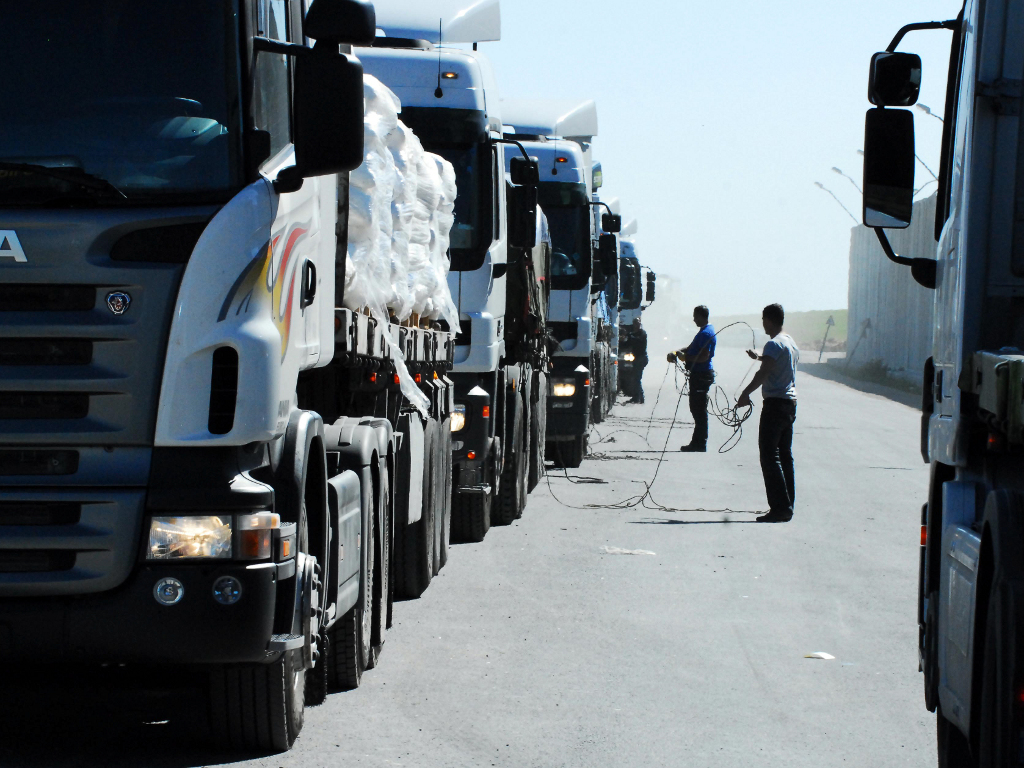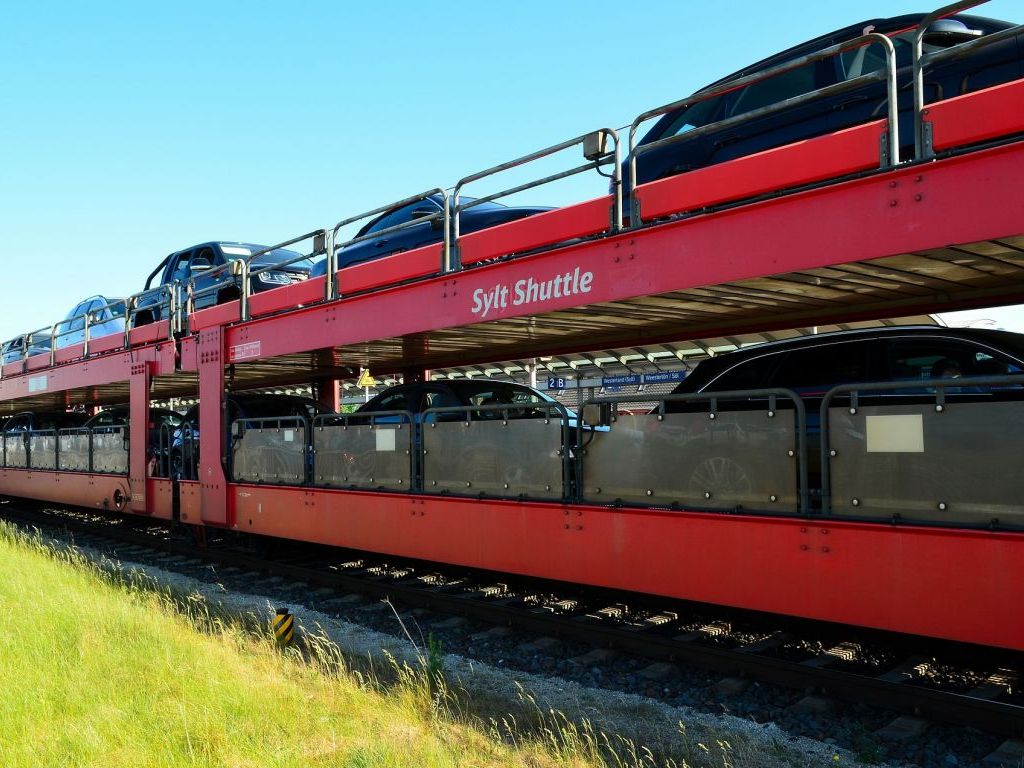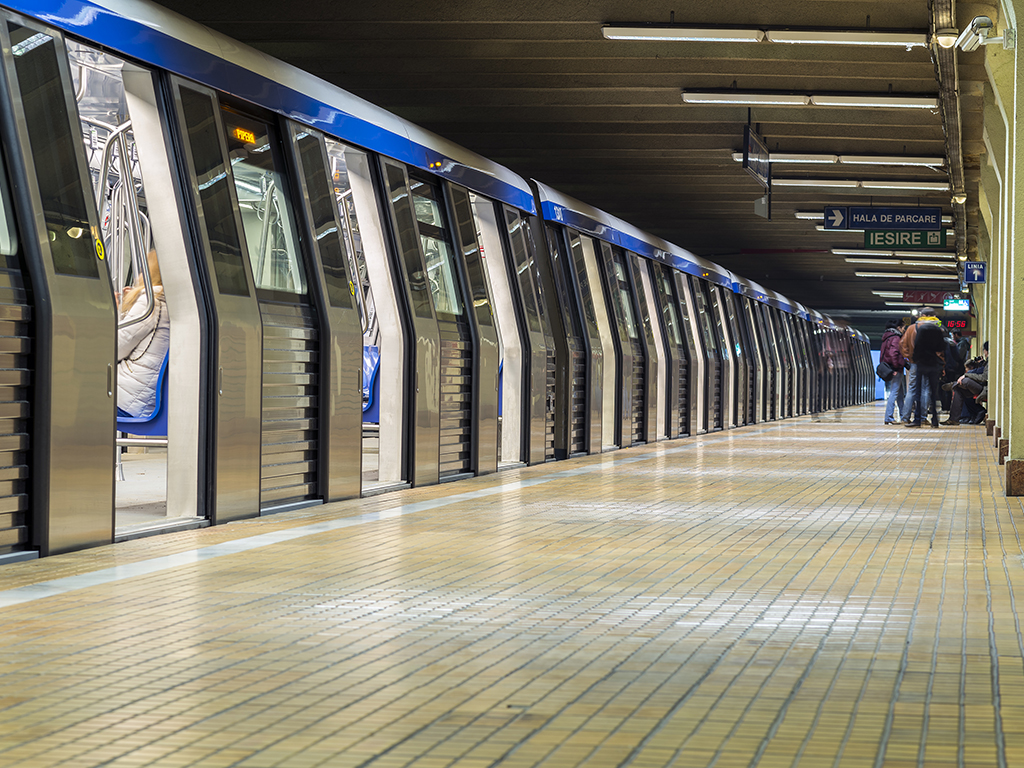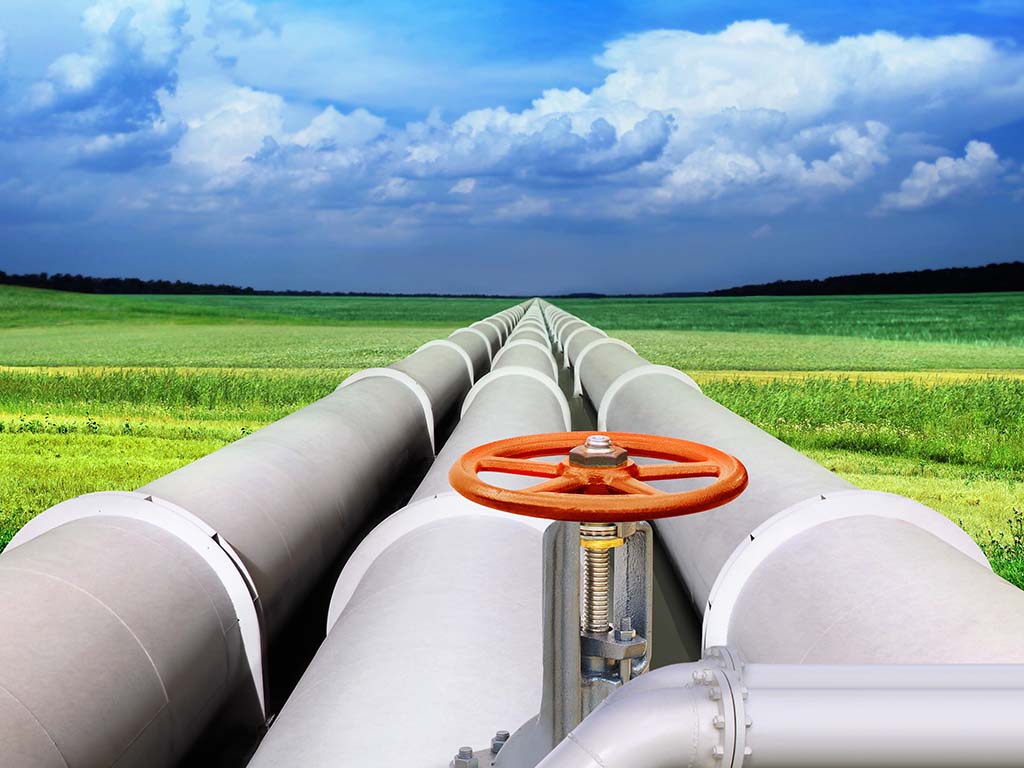Slobodan Aćimović, professor at the Faculty of Economics - Nothing will ever be the same again

The full professor of the Faculty of Economics from the Department of Business Economics and Management says that the time of the idyll in logistics has passed, but that even the relations between many countries in the world cannot return to the old ways. He wonders why Serbia would not ask for a special status in BRICS, which brings together so many energetically and economically strong countries, and notes that the main investments in Serbia in the future will come from the Eastern world. However, he estimates that many logistical problems would be solved significantly faster for us by joining the EU.
He reminds us that we need to rebuild the railway infrastructure, and that he sees EXPO as an event that will motivate us to complete some important infrastructure projects faster.
He also reveals how to solve the problem of waiting at border crossings, what investments we need, apart from those in infrastructure, and whether in ten years our reality will be driverless trucks, robots in warehouses, drones that will deliver goods.
eKapija: How would you assess the situation in the transport and logistics sector globally at this moment, with several current conflicts, the world divided, and the lack of indications that the geopolitical situation will stabilize in the near future? How much does all this, along with inflation and the energy crisis, affect the transport and logistics sector?
- For the last few years, from the coronavirus pandemic until today, we have been living in a world of constant turbulence, from wars, political conflicts, to the price of oil. Logistics is just an example of what is happening in the world. We have to understand that nothing will ever be the same again and that there are no more smooth supply flows.
Until 2019, we had a multi-decade idyllic situation. Logistics and supply chains functioned perfectly, led to the "just in time" principle of operating with minimal stocks, of having highly optimized ship movements that took 45 days to arrive from China, as opposed to today`s 60 days. It was an idyllic state of the global economy, which had to do with relatively cheap money that meant the possibility of serious investment and a long-term, multi-decade shift of capital to the East where it was cheap for Western companies to produce. Those same products partly remained in the East, and for the most part returned to the Western markets.
However, like a bolt from the blue, first comes the corona and the interruption of everything, followed by war and political conflicts. Essentially, logistics are thrown out of balance because the whole world, both economically and politically, is thrown out of balance. Logistics cannot act as if nothing is happening. All these transport flows are seriously affected by increased energy prices, oil as the main energy source in global transport, and the deficit of the very important labor force of drivers, primarily in goods transport. In addition, you also have often interrupted supply flows because you can no longer take the usual routes from here to Russia, for example, but have to circle, or ships can no longer go through the Suez Canal because they will be met by the Houthis or other unforeseen circumstances. Therefore, logistics and the problems in it are only a consequence of the political and economic turbulences everywhere in the world in the last four years.
eKapija: Can logistics be adapted to turbulent circumstances?
- The situation can calm down, before the corona, for example, it cost 2,500 USD to get a container from China to your company`s address, and later, at certain moments, that service cost up to 12,000 - 15,000 USD, so now it has returned to a proportionate price, 3,000-3,500 USD. It is very turbulent to be involved in logistics and transport activities anywhere in the world. The world will not be the same anymore, that`s why logistics cannot be as efficient as before. Europe will not be like it used to be anymore, it will not be idyllic between Europe and the East, not only Russia. We should not neglect the strength of the Global South, not only the UAE and Saudi Arabia, but also Africa, which is yet to explode with demands and investments in infrastructure.
eKapija: How much is this sector affected by the strengthening of BRICS, which already covers 30% of the world`s territory and where 45% of the world`s population lives, and how does this affect small countries like Serbia?
- One sees BRICS as a political antithesis to the West, the other extreme describes it as a ridiculous organization, and I would say that the truth is in the middle, that it is a growing organization with strong economic interests. This especially applies to Russia, India and China - those three countries are crucial for us. Some, especially from the so-called Third world countries will be racing to enter BRICS, perhaps following the trend, and you will see, as soon as the war in Ukraine ends somehow, some from the EU will be the first to apply. I see at least two or three countries from the EU, maybe Hungary, maybe Slovakia, which will ask for a special status, they don`t have to be members.
What would Serbia be missing if it had a special status? We don`t have to be a political member, maybe we can stay on the European path, as long as it lasts, but why wouldn`t we apply to have a special status in BRICS, which brings together so many energy and economically strong countries?

According to the forecasts of the IMF and the World Bank, Europe will stagnate, some countries will be in recession again this year, maybe America will have modest economic growth, but that is why India will have a growth of 8.5%, China 5.5%, Russia 3.5-5%. Let`s stop these political polarizations, the main investments in the future will come from the Eastern world. Look at the investment in Bor, the production and export of copper and gold. Maybe BRICS is not yet as well organized politically as the EU, but the economic strength is unquestionable, especially with these 10 countries. It didn`t surprise me that both Saudi Arabia and the UAE joined BRICS so quickly, although it probably came as a big surprise to their Western friends, who were actually only looking out for their own interests. Why shouldn`t Serbia also look at its own interests, economically, not politically?
eKapija: What are the biggest problems that the sector in Serbia is currently facing?
- No matter how skeptical I am about the EU as a political organization, I have an open view of the EU as an economic association and I would like us to move towards that economic association because then many logistical problems will be solved significantly faster for us. They cause us a significant problem of staying at border crossings. The logistics organization of various services, from customs, sanitary control, inspection, must be significantly improved at our border crossings, especially towards EU countries, Croatia and Hungary.
We have to work with our friends in the surrounding area to make it passable. We will probably have an easier time agreeing with some, with Bosnia and Herzegovina, North Macedonia, with others it will be more difficult, probably with Croatia. We get along better politically with some, with the Hungarians for example, so let`s expand those corridors, let`s go back to the model of "green corridors" we had during the corona, where we had an accelerated flow of truck inspections.
Why shouldn`t we decide in the future, both economically and politically? If we say that it is our political decision that our transport goes through Hungary and not through Croatia, let`s expand the number of crossings with Hungarians. Or let`s say to all logisticians, it is recommended that you drive all goods via Thessaloniki, forget Koper, Rijeka, Bar. And that they receive stimulation for that, so that it is not only at the level of recommendation. So, here we are talking about the politics of the next 10 years.
eKapija: What are the key projects in rail and road infrastructure in the next 10 years?
- I see transport and logistics in Serbia in the future through further investments, in the labor force sector, in the reconstruction of railway infrastructure, the construction of new high-speed lines, the completion of the Novi Sad - Subotica line, the beginning of Belgrade - Niš and later the revitalization of Belgrade - Dimitrovgrad and Belgrade - Preševo. . It is the backbone of railway traffic in Serbia, possibly in the next phase it will be Belgrade - Bar. These are key infrastructural projects that await us in the next 10 years.

I am glad that we will continue to invest in high-speed roads in Serbia, many of which are in operation, towards Western Serbia, towards the connection with Bosnia and Herzegovina, Eastern Serbia, on the route Golubac-Kladovo - Negotin, where we lack serious infrastructure investments. Then to connect Novi Sad-Belgrade-Zrenjanin, complete the Fruškogorsk Corridor, Novi Sad - Ruma, later towards Loznica and Republika Srpska and the so-called "Smiley" that will connect Bačka and Banat, to take over part of the transit traffic between Serbia, Romania and Hungary.
eKapija: Are all those roads that you mention working at sufficient speed?
- Of course not, it depends from project to project, the contractor and control of the works, the land that is passed through, unsettled property relations. We have a very slow expropriation between Čačak and Požega, so land acquisition creates an additional problem in addition to the existing difficulties around the tunnel.
I wonder why the road from Požarevac to Golubac is not being built faster, at least there are no tunnels and too many bridges and the full profile of the highway is not being built. The biggest challenge will be the new Belgrade - Niš railway, because it requires the installation of a completely new infrastructure in our country, existing tracks will be used on some sections, and completely new tracks on some, so the railway must be straightened. A lot of problems lie ahead in order to get to the track where trains will run, according to announcements, at a speed of 160 km/h.
The railway is the backbone of large flows of goods and passengers, especially over medium and longer distances, over 200 km, and that is why we need it. Finally, we also need the reconstruction of the railway because of the key corridor that will be opened in the region in the next 10 years as a strategic one, from Thessaloniki, which the Chinese call the Silk Road. Today, Hamburg is the key port for the entry of goods from China and India in Europe, and this will be the second route through which these goods enter.
eKapija: What investments are still necessary for us, besides those in infrastructure?
- I would suggest that in the coming period, apart from investing in infrastructure, we also deal with traffic policy, such as the introduction of concessions for certain types of traffic, which are in line with the EU. For a long time there has been a proposal to further reduce the excise duty only for carriers. In Montenegro, transporters do not pay excise duty at all. The companies that are primarily engaged in transport need an additional lower price of fuel in order to be more competitive and to be hired by the real sector, but also so that our transporter would not refuel as soon as he crosses the border. And not only is it cheaper for him in the RS and North Macedonia, but also in Croatia and Hungary, so our oil companies are at a loss as well, and in the finals, the country that, on that basis, has less tax and excise duty collection.

I would suggest that we do a little research on the carriers, to see what hurts the rail operators. Today we have a deregulated market for railway services. Apart from Srbija Kargo, we have 12 very active private railway operators in goods traffic, and those 12 companies that occupy 35% of the market constantly have some problems and complain about bad treatment by the state authorities.
It seems to me that it is better done in the air traffic segment. Air Serbia has significantly risen as a serious regional company. We saw that she reacted immediately last year after massive problems at the airport due to delays, she replaced incompetent airport services. That Vinci expanded tremendously by investing in infrastructure, a new runway, terminals, parking lots, but they failed in operations, so we had chaos at the airport and Air Serbia replaced the company that will provide ground operator services. The aviation industry has always been elite in relation to all forms of traffic and is at the forefront of changing for the better.
eKapija: When we talk about the future, EXPO awaits us, which is already attracting a lot of public attention, with criticism and praise. What will the organization of this World Exhibition bring us in terms of logistics and transportation?
- I`m not an expert in event management, but any gathering can be beneficial. I look at the EXPO as a kind of stimulus for us to finish some projects that we have not completed for a long time, especially in the Belgrade area, for example, the tunnel under the Faculty of Economics, which is planned as an important link between this part of the city and the Pancevo Bridge or the railway connection of the city center with the airport. And I believe that they will finally start us to work on the metro, because whatever the government is, it must finish the metro. Through that EXPO, we will invest in infrastructure that will cost a lot and that cannot bring immediate benefits, but I assume that cost-effectiveness studies have been done. Now imagine Belgrade if Branko Pešić had not opened the Terazija Tunnel or built the first 12 km of the highway in the seventies. Those key projects sometimes have to be done.
eKapija: What is the situation with storage capacities? The region of Central and Eastern Europe is in the second place in terms of the volume of storage capacities, right after Germany, according to the analysis of the CBRE consulting company. Do the current storage capacities in Serbia meet the demand?
- As a consultant, I have been involved in the development of storage capacities for the last 10 years, and I can confirm that the number of buildings is increasing, as well as their quality, and that the rental price is kept at a high level, 4.5 to 5 EUR per square meter, which is serious premium for investors. Just as we first had to invest in Air Serbia in order to attract an attractive investor for the airport, it is similar here, we had to invest in the transport infrastructure in order to attract investors who will build warehouses near that infrastructure.
One of my researches showed that 95% of foreign direct investments, production, warehouse, retail parks, came very close to highways, 22 km on both sides. I expect further growth in this sector, and our political relations with the EU will depend on whether the investors in warehouses will be companies from the EU or companies from the East will also appear.
Serbia is a key logistical place in this part of Europe, we have a house in the middle of the road, as Jovan Cvijić said, so I would add "let`s use it and let`s charge in terms of logistics".
Each of these multinational companies sees Serbia as a good logistics hub from where they will cover the Western Balkans market.
eKapija: If we keep in mind all the obstacles we talked about, what would you recommend to Serbian and regional companies from the transport and logistics sector - how to deal with all the limitations in order to be competitive on the European market?
- The significance of the logistics sector will grow. Logistics will cost us more and more, and this is also a chance to create resources in logistics for certain savings because many things can be rationalized, from electric trucks, outsourcing of some activities, joining companies, so that they can buy logistics services at a lower price, because they lease a larger number of containers. My suggestion is: "Trust the logisticians, they will always give you the best advice and don`t consider logistics as an irrelevant activity, look for a source of future efficiency in it".
I ask my students a trick question, is Walmart a retail company or a logistics company? Of course, it is a retailer, but it derives its biggest competitive advantage from logistics management, similar to Nelt.
The message to companies in the real sector is to cooperate in that supply chain, because this way greater savings are made, in packaging changes, better routing of vehicles, networking, better control of collective transport, not to drive empty trucks, or not to hire trucks if we can use the railway, to think about river transport, especially companies that are close to the river.
eKapija: What will transport and logistics look like in ten years - will driverless trucks, robots in warehouses, drones that will deliver goods prevail? How much of it is a science fiction film, and how much is the future realistic?
- Something is already the present. In many western companies, the warehouses are already seriously robotized, robots drive pallets. Autonomous vehicles have not yet come to life on a larger scale, but we already have a wide application of artificial intelligence in planning transport routes where a lot can be saved, especially in collective transport. Obviously, logistics is such an activity where great economic and IT knowledge, technological innovations are required.

But, in my opinion, the key question in the next 20-30 years will be energy - whether the mainstream in transport will continue to be electric energy or perhaps hydrogen energy. There will be a tough fight. Gasoline cars will not give up so easily either, and electric energy has experienced saturation in some countries, such as Norway, in some countries it has proven to be very expensive to charge electric vehicles, with the existing problems of batteries and the famous lithium, which is why more and more people are thinking about alternatives, such as hydrogen energy. In the cost of logistics, energy plays an important role, in air traffic it participates with 32.33%, in road traffic with even 40%.
I understand the Green Agenda, but it`s not going to happen that fast. We have already imagined, with the war in Ukraine and more expensive energy sources, whether we can give up coal so easily. Diesel is perhaps the easiest thing to give up.
All the latter are probably more interesting, both drones and robots, but I think the key economic dilemma is where the relationship between oil, electric and hydrogen vehicles will go.
Marija Dedić

Click here to see the entire Special Edition Newsletter
"Transport and logistics - Ready to move the impossible?"
































